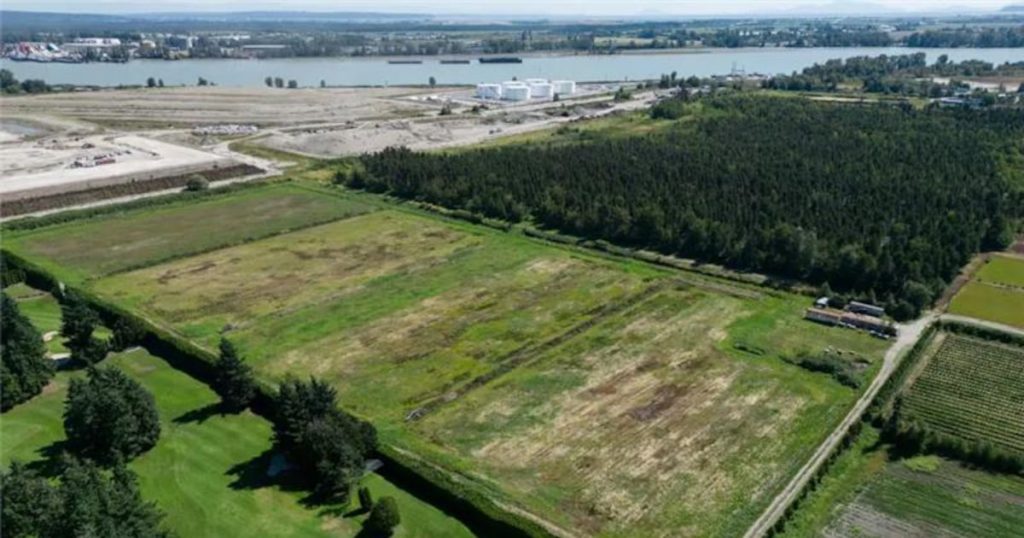Listen to the article
Cowichan Tribes has issued a strongly worded statement challenging what they describe as “misleading” and “deliberately inflammatory” public comments made by Richmond Mayor Malcolm Brodie and B.C. Premier David Eby regarding their Aboriginal title case.
The statement aims to clarify misconceptions about the recent B.C. Supreme Court ruling that recognized Cowichan Nation’s Aboriginal title over lands along the Fraser River in what is now Richmond, British Columbia.
“To be clear, the Cowichan Nation’s court case regarding their settlement lands at Tl’uqtinus in Richmond has not and does not challenge the effectiveness or validity of any title held by individual private landowners. The ruling does not erase private property,” the tribes emphasized.
In August, the B.C. Supreme Court issued an 863-page decision that ruled in favor of the Cowichan Tribes after a five-year legal battle. The court found that the tribes have Aboriginal title over approximately 1,846 acres of their traditional village site Tl’uqtinus and surrounding lands on Lulu Island’s south shore.
The court determined that Crown and city titles on these lands are defective and that the government’s granting of private titles unjustifiably infringed on Cowichan title. Importantly, the ruling requires the province to negotiate in good faith with the Cowichan to reconcile Crown-granted private ownership with Aboriginal title.
Historical records show that Tl’uqtinus was a significant Indigenous settlement, with Hudson’s Bay Company officials documenting over 108 longhouses in 1824. By 1827, the village was marked as a landmark on Fraser River maps.
At the heart of the case is a historical injustice. During colonial reserve creation beginning in 1859, Colonel Richard Moody, then Chief Commissioner of Lands for British Columbia, allegedly failed to designate the village and surrounding lands as a Cowichan Indian reserve. Instead, according to the Cowichan, Moody “surreptitiously took part of the lands for himself” as a land speculator.
Currently, over 780 acres of the disputed land are owned by the federal government, the Vancouver Fraser Port Authority, and the City of Richmond. The Cowichan Nation seeks to recover these publicly held lands, much of which remains undeveloped.
The controversy escalated when Mayor Brodie sent between 125 and 150 notices to affected property owners, including a briefing note indicating Richmond would argue that “Aboriginal title and fee simple title cannot co-exist over the same lands.” Premier Eby further fueled tensions by stating the province was working closely with Richmond on an appeal.
David Rosenberg, a lawyer representing the Cowichan Tribes, clarified that his clients “stand with the landowners” and share their frustration over provincial government inaction on the matter. He cautioned against applying this specific case, which involved “extreme circumstances” and “tremendous injustice,” to all fee-simple lands across British Columbia or Canada.
Chief Pam Jack of the Penelakut Tribe, part of the Cowichan Nation, directed landowners’ concerns toward the provincial government: “If any individual private titleholders at Tl’uqtinus are concerned about somehow suffering a loss, they should know their remedy is against British Columbia, the party responsible.”
Another Cowichan Nation leader, Chief Cindy Daniels, emphasized their respectful approach, noting, “We intentionally did not bring this case against any individual private landowners, and we did not seek to invalidate any of their land titles.”
Chief John Elliot added that the case “has always been about the Crown doing the right thing” after British Columbia’s “historic and ongoing refusal to address reconciliation at Tl’uqtinus.”
The chiefs condemned Richmond and British Columbia’s “negative and erroneous messaging” as “provoking unnecessary fears” and being “contrary to reconciliation.” They also described Richmond’s claim that they abandoned the Tl’uqtinus settlement as “appalling misinformation.”
British Columbia, the City of Richmond, and the Musqueam First Nation have announced plans to appeal the ruling. Richmond has scheduled an October 28 meeting with property owners to discuss the issue.
Meanwhile, B.C. Conservative leader John Rustad has called on Premier Eby to seek an immediate Supreme Court of Canada ruling on whether Aboriginal title can coexist with private property rights—a suggestion Rosenberg dismissed as “unrealistic,” noting that Canada’s highest court would require a complete record from both the trial and appeals courts before considering the case.
Fact Checker
Verify the accuracy of this article using The Disinformation Commission analysis and real-time sources.




8 Comments
This case highlights the ongoing tensions between resource development, private property rights, and Indigenous land claims. A balanced, collaborative approach will be needed to find mutually acceptable solutions.
As an investor in mining and resource stocks, I’m curious to see how this case could impact development and operations in the affected areas. Careful consideration of Indigenous rights will be important going forward.
The Cowichan Tribes’ statement provides helpful clarification on the limited scope of the court’s ruling. It’s important to avoid exaggerated claims or mischaracterizations of the decision’s implications.
Absolutely. Maintaining factual accuracy and avoiding inflammatory rhetoric is crucial for constructive dialogue on these sensitive issues.
Interesting case highlighting the complex land ownership and rights issues between First Nations and local governments. It’s good to see the Cowichan Tribes providing clarification on the scope and impact of the court ruling.
As a shareholder in mining and energy companies, I’m closely watching how this case and similar Indigenous rights issues could impact project approvals and operations in the affected regions. Careful management of these challenges will be key.
This case illustrates the ongoing challenges of reconciling Indigenous land claims with existing private and public land titles. A balanced and transparent approach is needed to address these sensitive issues constructively.
I agree. Maintaining open communication and finding mutually acceptable solutions is crucial for all parties involved.